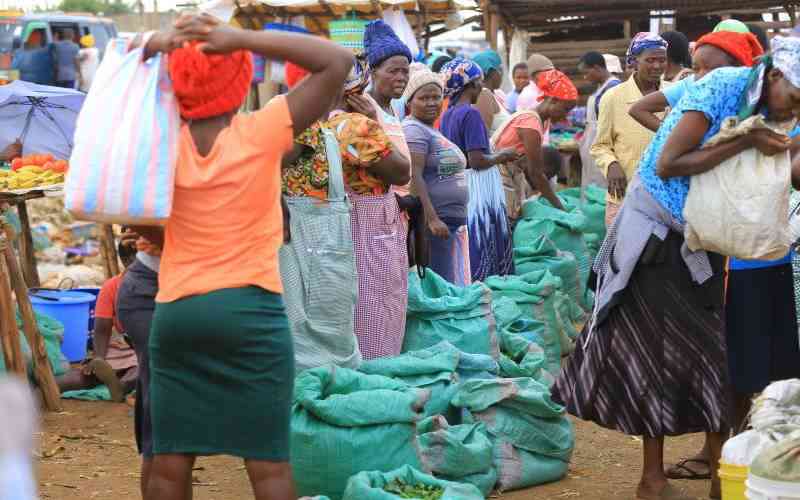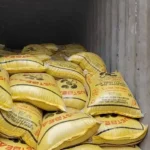Millions of Kenyan families are staring at a deepening financial crisis as a sharp decline in diaspora remittances, triggered by the United States’ intensified immigration crackdown under President Donald Trump, threatens household incomes and the nation’s economic stability.
Fresh data from the Central Bank of Kenya (CBK) reveals that remittance inflows fell significantly in July 2025, dropping by Sh542.8 million to stand at $410.1 million (about Sh53.0 billion). This marks a 1.0 percent dip compared to July 2024, when Kenyans abroad sent home $414.3 million. The fall follows another sharp decline in June, when inflows dropped by 3.86 percent to $423 million, down from $440 million in May.
Remittances are a vital economic lifeline for Kenya, serving as one of the country’s largest sources of foreign exchange and a major pillar of household income. For millions of families, particularly those with relatives in the United States, Europe, and the Middle East, this money provides essential support for food, housing, education, healthcare, and resilience against financial shocks. The World Bank has long noted that diaspora funds help reduce poverty, improve child nutrition, increase school enrollment, and support community development projects across the country.
Analysts warn that the recent decline signals a troubling shift. “The drop raises serious concerns for Kenya, which heavily relies on these inflows for household welfare and macroeconomic stability,” said Nairobi-based analyst Ian Njoroge. The CBK bulletin underscored this worry, noting that remittances remain a key source of foreign exchange earnings and are crucial in maintaining the country’s balance of payments.
The decline comes in the wake of the Trump-backed One Big Beautiful Bill Act, implemented in July 2025, which introduced a 1 percent tax on all cash-based remittances sent from the US. While initially aimed at undocumented migrants, the law now applies universally to all senders, including American citizens, with no refund mechanisms. Experts warn that even such a small levy could reduce remittance volumes by up to 1.6 percent, compounding the strain on dependent families in Kenya.
Beyond the tax, a harsher climate of immigration enforcement has added to the pressure. Reports of increased raids by US Immigration and Customs Enforcement (ICE), reduced refugee resettlements, and a surge in anti-migrant rhetoric are creating fear among immigrants, including legal residents and green card holders. Some have started withdrawing savings from US financial institutions and moving funds elsewhere, which in turn reduces the liquidity available for regular family remittances.
The United States accounts for more than half of Kenya’s total remittances about 54 percent of all inflows, making the country’s economy acutely vulnerable to American policy changes. With an estimated four million Kenyans living abroad, the majority in the US, any disruption in their ability or willingness to send money home has direct consequences for families and for Kenya’s broader economic stability.
Strong remittance flows have long helped support the Kenyan shilling and maintain foreign exchange reserves. As of August 14, 2025, the CBK reported usable foreign reserves of $11.112 billion, equivalent to 4.9 months of import cover. Sustained declines in remittances could erode these reserves, weaken the shilling, and destabilize the broader economy.
The trend also complicates President William Ruto’s initiative launched in August 2024 to create one million overseas jobs for Kenyans. The plan was designed not only to tackle unemployment among the country’s fast-growing youth population but also to boost remittance inflows and strengthen the currency. However, the back-to-back drops in remittances highlight how external policies, particularly in the US, could undermine these ambitions.
While cumulative inflows over the past 12 months (July 2024 – July 2025) still reflect an 11.1 percent increase, reaching $5.08 billion compared to $4.57 billion in the previous period, the month-on-month declines are a red flag. Analysts caution that the newly imposed remittance tax and the prevailing hostile environment for migrants suggest these headwinds will persist, with ripple effects on families and the national economy.
For millions of Kenyan households, the situation is deeply personal. Remittances are not just figures in an economic report they are the difference between a child attending school or dropping out, a family accessing medical care or going without, and a community surviving financial shocks or sinking deeper into poverty. As policymakers and financial experts continue to assess the implications, the question remains: how will Kenya shield its citizens from the mounting financial storm brought on by global migration politics?













Leave a comment